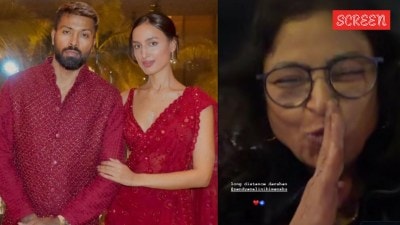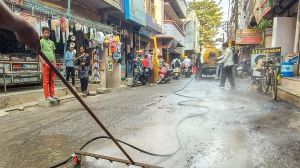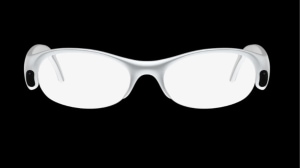Third Eye
Elisabeth Fleischmann first came to India in 1994 as a tourist and returned four years later to discover real life and real people. When ...

Elisabeth Fleischmann first came to India in 1994 as a tourist and returned four years later to discover real life and real people. When asked about her first impressions about the city, she lets out a 8220;Wow!8221; and adds that the novelty is mostly heat and traffic. Her first few days were spent behind the closed doors of a hotel before she realised that the real people were outside. 8220;The way life goes on here is something probably no European can imagine. Everything is so different 8211; the food, the people, the climate8230;8221; continues Elisabeth.
She has been a familiar face for the students of the Max Mueller Bhavan for eight weeks now, a cultural interface of sorts. 8220;It was important for me to meet people from varied backgrounds. I was invited to homes to see how people lived. And meeting them made me shed any inhibitions. The once-chaotic streets are now familiar,8221; recalls Elisabeth. She is all praise for Indian food and intends to memorise as many recipes and try them back home.
8220;When I first saw a masala dosa, I wondered if it was paper. All this finger-food manipulation amazed me,8221; she reveals, laughing. A trip to the market was confusing because she could not distinguish the fruits from the vegetables. 8220;I thought chikoos were potatoes,8221; she grimaces.
Elisabeth is very serious when she talks about her purpose of being here. Part of it involves building an inter-cultural understanding and the other is to dispel myths about India back home. So she will return armed with vivid portrayals of Indian life in the form of photographs and perhaps stories. 8220;The people here communicate with their body, so it is not very difficult to follow them. I could also follow the film Kuch Kuch Hota Hai and liked it. I like the sari, it8217;s so colourful. I visited a number of colleges, museums and would now like to see a performance of Indian dance and music. What is most important is that I am able to share and reciprocate the warmth of all those I have met,8221; she says.
Elisabeth admits that the initial insecurity of standing apart and being singled out for inspection is present in every new place. 8220;I did not want to present the stereotypical image of the scantily-clad European woman. Clothes that would go unnoticed in Germany would draw a lot of attention here. I believe that one must respect and try to fit into the culture of the place that one is in,8221; she opines.
Elisabeth believes that India elicits extreme reactions from Europeans. There is the poverty and undesirable male attention on one hand and then there is the view of India as an exotic land. 8220;I would like to look at the country in her various shades. I would also like to think that I am now familiar with contemporary Indian culture and have acted as an ambassador,8221; she says.
Elisabeth agrees that there is so much more to learn that it cannot be accomplished in such a short span. She will be making a trip to the South before returning to Germany, and hopes to come back next year and tour the East. So till next year then!
- 01
- 02
- 03
- 04
- 05































